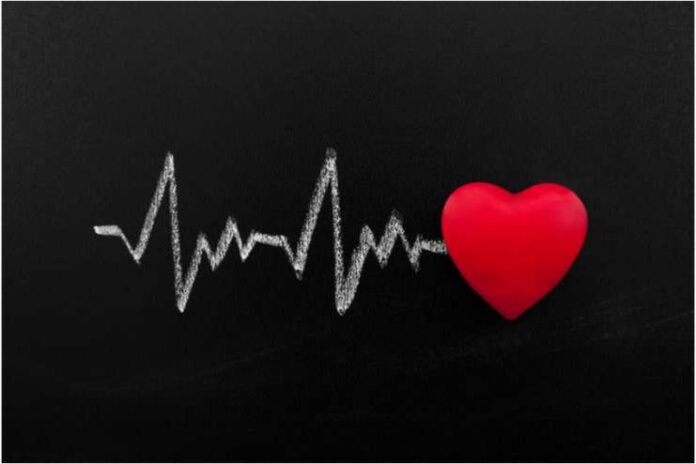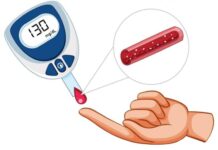Affiliate Disclaimer
Some links in this article are affiliate links. We may earn a small commission if you make a purchase through these links, at no extra cost to you. We only recommend products we find useful to our readersWhat is an Irregular Heartbeat?
When the heart’s normal rhythm is distressed, it can beat exceedingly rapidly, gradually or abnormally. Regular problems are typical, and generally minor, but extreme or persistent arrhythmias could indicate underlying clinical issues that require attention. Arrhythmias can take various forms, such as early or irregular heartbeats, or atrial fibrillation.
Common Symptoms of Irregular Heartbeat
Among the most common signs is palpitations, in which the heart appears to be fluttering, pounding, or avoiding beats. A sense of being out of breath might accompany this during exercise or while the person is at rest.
A more frequent symptom is dizziness, resulting from the heart’s inability to pump blood efficiently, reducing the amount of blood going to the brain.
When the illness is extra severe, people might have breast discomfort or pain. Examine it as soon as possible because it might indicate significant problems like cardiovascular disease.
10 Causes of Irregular Heartbeat
1. Heart Disease

A vital aspect of uneven heartbeats, or arrhythmias, is heart disease. Coronary artery illness is characterized by the tightening or clogging of the coronary arteries and reduces blood supply to the heart muscle mass. This can result in ischemia and arrhythmias. Damage to heart cells brought on by a cardiovascular disease can disrupt the electric pathways that regulate the heart’s rhythm. Heart arrhythmias are frequently a result of structural and functional changes in the heart that result from cardiac arrest, a condition in which the heart is unable to pump blood successfully.
An additional element causing uneven heartbeats is mark cells from previous heart surgical treatments or cardiovascular disease that could hamper the heart’s electric signals. Regular monitoring, drug therapy, lifestyle changes, and possibly surgical treatment are all necessary to prevent and control arrhythmias linked to heart disease.
2. High Blood Pressure

Hypertension, or raised high blood pressure, is a widespread factor that causes uneven heartbeats. Lengthy hypertension causes the heart to function more challengingly by pumping blood, which enlarges and tightens the heart muscle mass, specifically the left ventricle. Left ventricular hypertrophy is a condition which can alter the electric transmission system of the heart and also elevate the threat of arrhythmias. On top of that, heart disease and coronary artery illness– 2 problems related to uneven heartbeats– can emerge as an outcome of hypertension. In addition, hypertension can cause the heart’s chambers, specifically the atria, to increase, which places individuals in jeopardy of atrial fibrillation. Minimizing the threat of arrhythmias plus relevant heart troubles calls for regulating hypertension with a way of living adjustments such as a healthy diet plan, regular workouts, and also medicine.
3. Electrolyte Imbalances
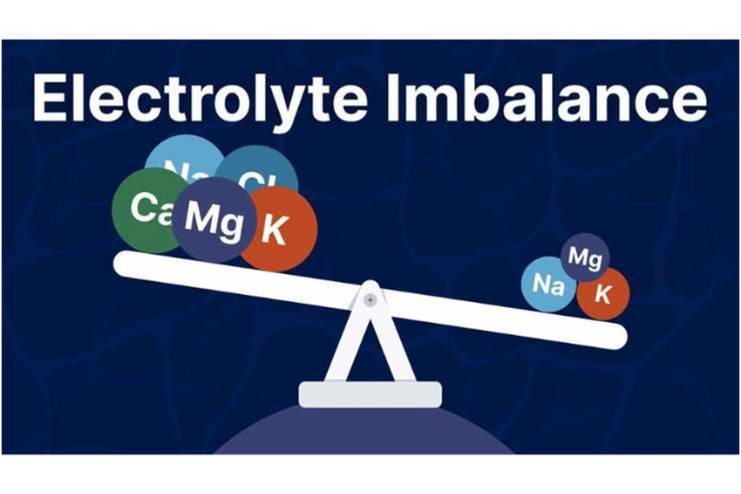
Electrolyte discrepancies- particularly those concerning potassium, salt, calcium, and magnesium- are necessary for maintaining the everyday electric task of the heart. The manufacturing and conductivity of electric impulses that regulate heartbeats depend upon these electrolytes. Arrhythmias can arise from a discrepancy prompted by dehydration, specific medications, or clinical conditions. Hypokalemia or reduced potassium, for instance, can cause arrhythmias like ventricular fibrillation, which are possibly deadly.
On the other hand, hyperkalemia or raised potassium degrees can create severe arrhythmias and also slow-moving heart prices. Calcium and magnesium imbalances can likewise influence heart rhythm; reduced degrees can bring about more extended QT periods, increased opportunity of torsades de pointes, and a particular sort of arrhythmia. It is important to check and readjust electrolyte degrees with food, supplements, and treatment to avoid arrhythmias prompted by these discrepancies.
4. Thyroid Disorders
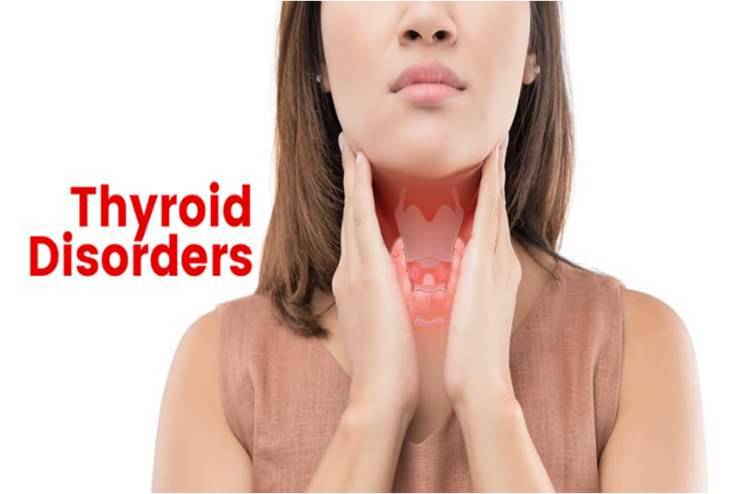
Thyroid problems such as hyperthyroidism and hypothyroidism can significantly influence cardiac rhythm. In hyperthyroidism, the thyroid gland produces too many thyroid hormonal agents, which quickens the metabolic process and places even more pressure on the heart. Atrial fibrillation, tachycardia, and various other arrhythmias can arise. Because of overstimulation of the heart, individuals with hyperthyroidism regularly feel palpitations and anxiousness, coupled with other signs and symptoms.
On the other hand, bradycardia, or a sluggish heartbeat, can be induced by hypothyroidism, which is identified by reduced thyroid hormonal agents that decrease metabolic rate. Although much less constant, hypothyroidism can influence the electric connection and myocardial features, which can cause various types of arrhythmias. Maintaining a regular heart rhythm and staying clear of arrhythmias depends upon dealing with thyroid conditions with the appropriate drugs, such as hormonal agent substitute treatment for hypothyroidism or antithyroid medications for hyperthyroidism.
5. Excessive Alcohol Consumption

People generally acknowledge that consuming too much alcohol increases the risk of uneven heartbeats. Arrhythmias can arise from cardiomyopathy, a problem where the heart muscle mass is damaged and weakens, which is induced by extended hefty alcohol consumption. The problem is called “vacation heart disorder” in which healthy and balanced individuals create radical atrial fibrillation or various other arrhythmias adhering to considerable alcohol intake.
Alcohol has the potential to create arrhythmias because of its straight poisoning to heart cells, impacts on electrolyte degrees, plus the excitement of the nervous system. Decreasing alcohol intake or stopping entirely can improve heart wellness by reducing the threat of alcohol-related arrhythmias. It is specifically vital for individuals who currently have heart issues or arrhythmias to restrict their alcohol consumption as well as note clinical recommendations to prevent making their signs and symptoms even worse.
6. Stimulant Use (e.g., caffeine, nicotine)
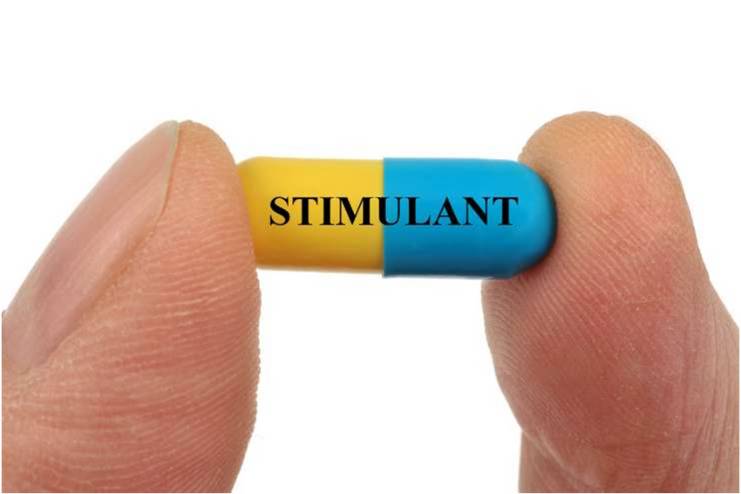
The use of stimulants like caffeine and nicotine can be credited with the development of uneven heartbeats. Coffee, tea, and power beverages all include high levels of caffeine, which can boost heart prices and generate palpitations, specifically in those who are conscious of it or if they consume a great deal of it. Nicotine, found in cigarette products, similarly stimulates the heart by increasing the release of adrenaline, which can cause arrhythmias such as tachycardia. Both medicines can intensify pre-existing heart troubles and increase the threat of arrhythmias.
Energizers can elevate tension degrees and tamper with rest cycles, worsening uneven heartbeats. Lowering or quitting using these energizers is regularly encouraged for people who are having arrhythmias as a component of a much more thorough administration to prepare for heart rhythm issues. Embracing a much healthier way of life and getting help for nicotine dependency can substantially improve cardio health and reduce the chance of heart irregularities.
7. Certain Medications

Even though they are implied to attend to various clinical conditions, some medications might unintentionally cause irregular heartbeats as an adverse effect. Arrhythmias can periodically arise from drugs used to treat heart conditions, such as beta-blockers, calcium network blockers, and antiarrhythmics if they are not dosed or checked properly. Various other medicines can change the electric task of the heart and also can cause arrhythmias. These medicines include antidepressants, antipsychotics, and antihistamines.
Over-the-counter medicines and supplements that contain stimulants like pseudoephedrine can also prompt irregular heartbeats. To stop unfavorable communications as well as negative impacts, individuals have to reveal to their doctors all the drugs they take. Regular monitoring, proper dosing, and adjusting medications under medical guidance can minimize the risk of arrhythmias caused by medical treatment.
8. Stress and Anxiety

Stress anxiety plus stress and anxiety can have a substantial impact on heart rhythm regularly, leading to uneven heartbeats. Tension hormonal agents like cortisol and also adrenaline are launched by the body when an individual is under stress and anxiety, as well as these chemicals can increase high blood pressure as well as heart price. This raised degree of awareness can disrupt the heart’s routine electric task, creating tachycardia, palpitations, and various other arrhythmias. Extended anxiousness, as well as anxiety, can intensify pre-existing heart troubles and also help in the development of brand-new arrhythmias.
Additionally, individuals who experience stress and anxiety problems can end up being hyperaware of their heartbeats, which can intensify stress and anxiety as well as bring about a vicious circle. Stress-related arrhythmias can be substantially reduced by managing tension plus anxiousness, making use of approaches like workouts, mindfulness, therapy, and also when called for drugs. Keeping heart health and wellness needs leads to a healthy and balanced way of living and obtaining assistance for psychological illness.
9. Sleep Apnea

Frequent episodes of partial or overall respiratory tract blockage throughout rest, which lead to recurring hypoxia (reduced oxygen degrees), are the trademark of OSA. This ailment places a great deal of stress on the heart, which elevates the possibility of arrhythmias. Constant reductions in oxygen saturation plus boosts in CO2 can result in variants in high blood pressure and also heart price, which can cause arrhythmias such as atrial fibrillation.
In addition, raised supportive nerve system tasks might arise from rest apnea-related interrupted rest patterns, which might intensify uneven heart rhythms. The continuous positive airway pressure (CPAP) device is frequently used in sleep apnea therapy, which can improve oxygenation and reduce the risk of arrhythmias.
10. Genetics

One significant variable adding to the propensity towards uneven heartbeats is genes. Several genetic diseases, including hypertrophic cardiomyopathy, Brugada syndrome, and Long QT syndrome, can significantly raise the risk of arrhythmia. These hereditary problems affect the heart’s electrical system, causing uneven heart rhythms that can sometimes be deadly. A family member’s background of arrhythmias or abrupt heart fatality might additionally disclose a hereditary threat. Proper preventative activities and therapies can be assisted by hereditary screening plus treatment, which can aid in determining which people are at risk.
Understanding the hereditary structure of arrhythmias assists in individualized clinical therapy. Positive monitoring or family testing can play an essential duty in stopping tragic repercussions connected to uneven heartbeats in those with a recognized hereditary threat.
Preventing Irregular Heartbeat
Preserving a heart-healthy way of life and dealing with underlying clinical concerns are vital to avoiding irregular heartbeats. A well-balanced diet plan packed with fruits and veggies, as well as entire grains, regular workouts, and abstaining from too many quantities of alcohol, high levels of caffeine, and energizers, are necessary initial steps. Taking care of the stress and anxiety is crucial to exercising leisure approaches like yoga, exercise reflection, and obtaining sufficient rest.
Appointments with a doctor often help in the tracking and also monitoring of conditions such as diabetic issues, thyroid concerns, and hypertension. It’s likewise vital to stop cigarette smoking and also restrict your direct exposure to pre-owned smoke. Furthermore, drug-induced arrhythmias can be stayed clear of by being educated regarding medicines as well as any feasible adverse effects.
When to See a Doctor
If you often or drastically experience signs and symptoms of an uneven heartbeat, such as lightheadedness, lack of breath, breast pain, or fainting, you must speak with a doctor. These indicators might indicate a harmful hidden disorder that requires to be assessed by a medical professional. In addition, as these ailments can increase the threat of arrhythmias, consult a medical professional if you have a background of diabetic issues, hypertension, heart disease, or thyroid problems. If you take any drugs that might interrupt your heart rhythm, you must obtain regular examinations. Very early recognition and treatment are essential to handle arrhythmias and prevent effects.
Conclusion
Maintaining heart health requires understanding the methods for uneven heartbeats. While most arrhythmias are safe, some can suggest significant health issues. A heart-healthy way of life with stress and anxiety administration, along with watching out for hidden problems, can all aid in substantially decreasing the opportunity of arrhythmias. Individuals can effectively preserve their heart wellness and prevent problems with uneven heartbeats by being educated and staying positive.
In this Article















